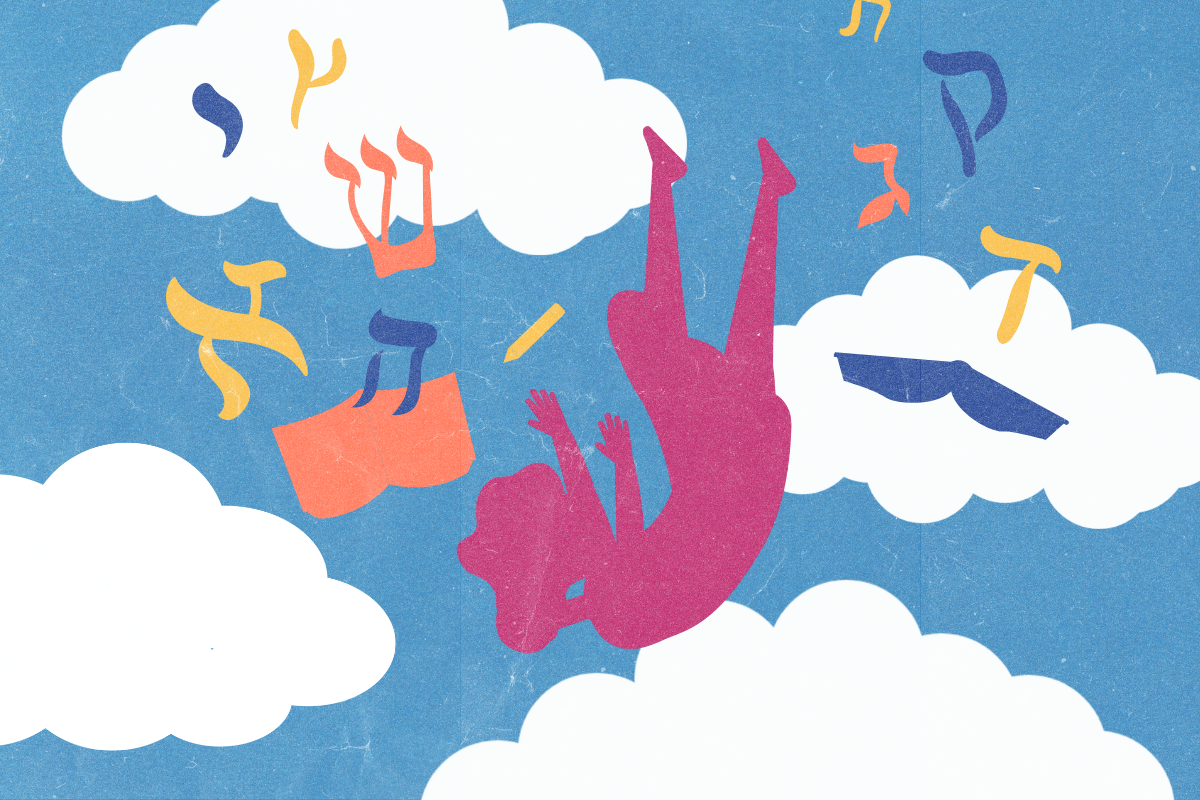My mother was 6 years old when she first learned that she wasn’t as important as her brothers. She doesn’t remember exactly the Sunday school story or platitude that led to this epiphany, but she can picture the room in vivid detail — the windows, the doors, the asbestos-blue tile. It was 1968 in a Detroit suburb’s Conservative synagogue, which my mother’s family faithfully flocked to each weekend because that was what Jewish families were supposed to do, because the grandparents were still living, and because they hoped to find a community that would accept them.
In 1968, there had been no female rabbis in the United States (four years later, Sally Priesand would become the first). It had been only 66 years since the first American bat mitzvah celebration, and in my mother’s community, bat mitzvah ceremonies were seen as frivolous compared to their male counterparts. My uncles both became bar mitzvahs, but as tweens were more invested in the party and presents than in the meaning of their coming-of-age. My mother saw years of Sunday and Hebrew school looming ahead like a patriarchal specter, and finally mustered the courage to tell her parents that she wanted to quit.
Their immediate support of her decision quickly curdled her palpable relief into confusion with a nagging sense of disappointment. Today, she tells me, she’s not sure if her parents allowed her to become a Sunday school dropout because they honored her indignation — or if they also believed her Jewish education was less valuable than that of their sons. She came to resent the religion that had deemed her subordinate to her brothers.
I think of Helène Aylon. The eco-feminist artist, raised Orthodox in Brooklyn, was already creating her religion-critical feminist works while my mother was suffering through Sunday school in Michigan. Aylon’s acclaimed multimedia collection, “The G-d Project,” was inspired by a desire to “rescue G-d from the patriarchy.” In a piece entitled “The Liberation of G-d,” Aylon copied each page from the Five Books of Moses and then barraged any passage she found problematic with a neon pink highlighter. She believed that the misogyny, exclusion of women’s narratives and homophobia she found in sacred texts didn’t reflect the true intentions of God, but rather that of biased male authors. A menstrual chart and Aylon’s own marriage contract feature in other “The G-d Project” works, usually highlighting the erasure of Jewish matriarchs and the double standards in the expectations regarding Orthodox men and women.
Aylon and my mother shared many of the same grievances about the faith that had been prescribed to them. The minyan was one — in their Orthodox and Conservative upbringings, women were not considered holy or valued enough to constitute the quorum required for public prayer. Another was the mikveh, or ritual bath, a requirement for women and a suggestion for men in some communities. A portion of the daily prayer recited by observant men was yet another: “Blessed are you, Lord our God, Ruler of the Universe, who has not made me a woman.” By contrast, the morning prayer of observant women thanks God, “who has restored my soul within me.”
With these teachings, my mother was instructed that her gender rendered her less worthy in the eyes of God. Is the soul of a man inherently whole, or a woman inherently unclean? Is my frustration with this too unfeminine?
I wonder if my mother’s relationship to Judaism would have been different had she been exposed to Jewish and feminist work like Aylon’s earlier; I introduced her to Aylon’s autobiography, which the internet introduced to me, in high school. I wonder what her path would have been had she come of age in the era I did, as Jewish spaces have become more egalitarian and attitudes towards Jewish womanhood have shifted in a positive light. I wonder if my sister and I would have been bat mitzvahs — or been raised more, well, Jewishly — even without a community outside of our southern Appalachian home. I wonder if, somehow, putting all of this into words could break the chain that binds us both. Many of my mother’s grievances with Judaism stem from the minimization of womens’ tales; I want to set our stories down in unapologetic black ink.
Despite her experiences, my mother is not anti-religion. She’s anti-intolerance and anti-hypocrisy, and she believes that religion can be deeply rewarding when it isn’t solicitous. She holds onto artifacts of her past, she says, like lighting Yahrzeit candles each year, but she can’t say why. She supported an aunt who sat shiva. She makes challah and latkes with vigor, and makes sure Hanukkah candles are well stocked. She brushed up on the Hanukkah story to teach my second grade class, where I was the only Jew. She pores over troves of cultural Judaism, like Dan Greenburg’s satirical “How To be a Jewish Mother” and Ellis Weiner and Barbara Davilman’s “Yiddish With Dick and Jane.”
My mother may not be a bat mitzvah, but she considers the rebelliousness that kept her from the bimah to be her strength — and so do I. Her independent thinking and chutzpah should be seen as an honor to the religion she divorced at 6. Like the Jewish matriarchs before her, she strives to live her life through the universal practices of equity, courage and respect — and the examples she sets inspire me to do the same.



